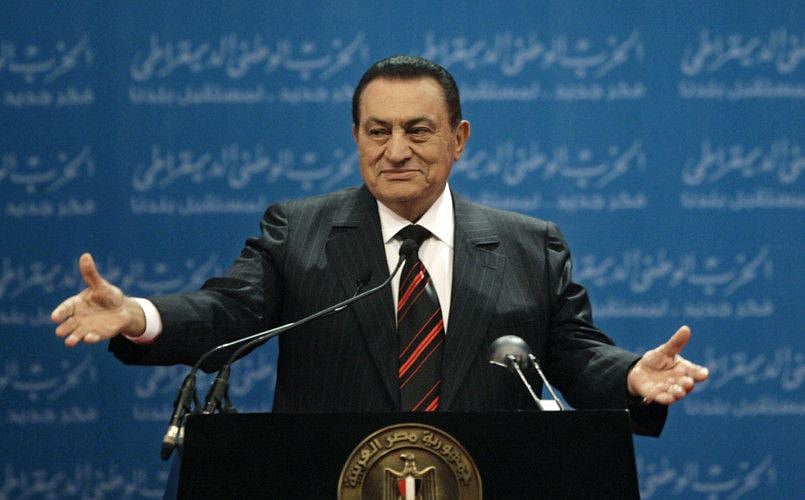Hosni Mubarak kept Egypt united during difficult times
He led Egypt’s transformation to a free market society

He might have been out of power for almost a decade, but Hosni Mubarak continued to gain the respect of his fellow citizens and outside Egypt until his death on Tuesday.
The former president, who ruled Egypt for 30 years until he stepped down following popular protests in 2011, stayed out of the limelight ever since he left the presidency. He spent most of those between trials and hospitals. Aside from the few times he spoke to the judges during his trials, he kept to himself as a private citizen. Egyptians respected him for that.
Different people have different opinions of Mubarak and what he represented. Nevertheless, most agree that he, as a military officer, vice-president and president (since 1981), embodied an important era in the modern history of the largest Arab country, which began with a military victory in 1973 that led to the return of Israel-occupied Egyptian lands, including Sinai. Then came the historic Camp David peace agreement with Israel in 1979. That era also saw Egypt’s transformation from a socialist-led regime to a free market society and the establishment of political parties.
The outpouring of condolences from Egyptians, including those who rose against him in 2011, shows that despite his obvious shortfalls as president, Mubarak will always be remembered as a patriotic leader, unlike many others in the Arab world who unleashed the full military power against their people during the so-called Arab Spring. He chose to withdraw peacefully from public life to preserve his country’s unity and stability and avoid internal conflicts that erupted in other countries such as Syria and Libya.
Mubarak endured numerous trials despite his obvious illness. He was eventually exonerated of most charges against him, including the serious charge of responsibility of the death of protesters during the Tahrir Square demonstrations. He maintained his innocence and was ultimately acquitted in 2017.
His trials were controversial because they were deemed as an act of revenge during the short-lived rule of the Muslim Brotherhood and their leader, former president Mohamed Mursi, ousted in July 2013 following another mass protest. During the last phases of the Mubarak trials, under the current President Abdul Fattah Al Sisi, the court was seen as too lenient towards the former president.
However, all agree that Mubarak, despite his often-autocratic governing style, will be remembered as the man who kept his country united during a critical junction of its modern history.
Network Links
GN StoreDownload our app
© Al Nisr Publishing LLC 2026. All rights reserved.